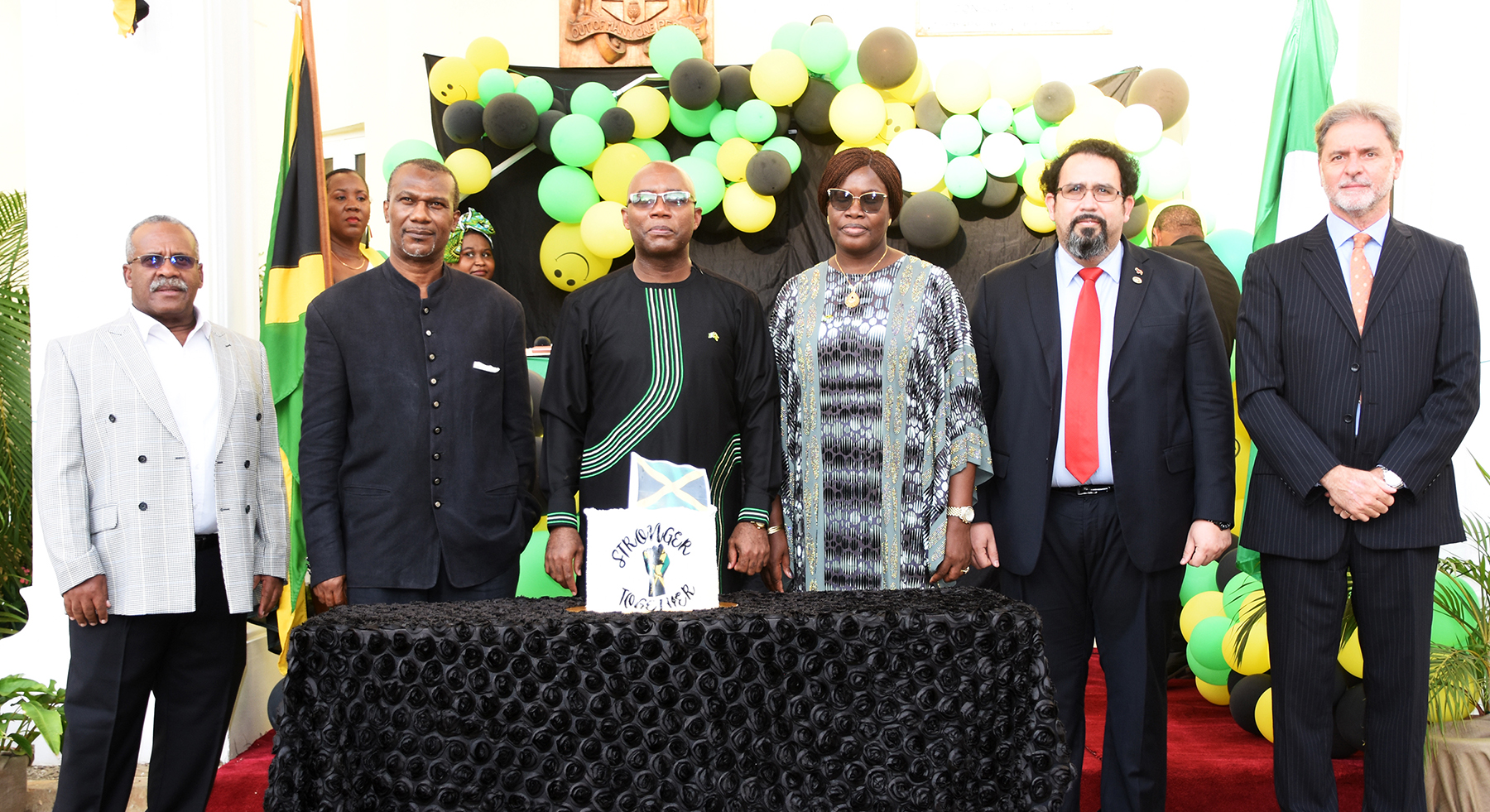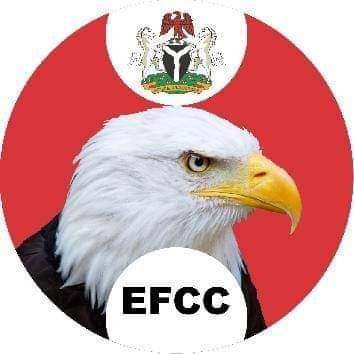Politics
W’African Countries Want INEC’s Election Monitoring Tool – Yakubu

The Independent National Electoral Commission (INEC) says many countries in West African have shown interest in studying and adopting its innovative tool on election monitoring and support system for their use.
INEC Chairman, Prof. Mahmood Yakubu, disclosed this at the weekend at the opening of a two- day retreat on “the Optimisation of the Election Monitoring And Support Centre (EMSC) operational structure” held in Keffi, Nasarawa.
Yakubu said that the EMSC had become a vital tool in the monitoring, implementation and management of Nigeria’s electoral plans and activities.
He said when his led-commission was first inaugurated in November 2015, its resolve was to consolidate on the gains of the last commission (2010-2015) in building systems for the continuous and effective management of the electoral process.
Yakubu said the goals were not only to address the challenges encountered during the 2011 and 2015 general elections.
He said it was also to develop proactive and knowledge-driven systems that would address those challenges in 2019, as well as continue to support the commission’s efforts in the planning, conduct and management of elections.
“The continuous search for innovative and better systems for the management of our electoral process crystalised into the 2017-2021 Strategic Plan (SP)/Strategic Programme of Action (SPA), the 2019 Election Project Plan (EPP), as well as the EMSC.
“Consequently, the commission has, over the years, continuously expanded the frontiers of electoral management and governance by introducing innovations and knowledge-driven systems. The EMSC is one of such innovations.
“As an electoral early-warning, monitoring, implementation and management tool, the EMSC, relying on field offices and personnel across the 36 states and the FCT, alerts the commission to the challenges, identifies electoral risks/threats and provides real-time information on the status of an election.
“In doing so, the EMSC makes available to the commission the necessary information in making real-time interventions to avert or mitigate potential risks or threats to an election,” he stated.
Yakubu added that in the build-up to the 2019 general election, it became increasingly clear to INEC that a coordinated early warning, monitoring and implementation system was necessary.
This, according to him, was to track hundreds of inter-related electoral activities in the Election Project Plan for the 2019 general election.
He said that accordingly, INEC accepted the recommendations of the 2019 Election Project Plan Committee (EPPC) to integrate the three monitoring mechanisms of the commission into a single unit called the EMSC.
He listed the three monitoring mechanisms as the Election Management System (EMS), Electoral Risk Management (ERM) and Election Operations Support Centre (EOSC).
“The EMSC has greatly helped the commission in managing the electoral process.
“As a testimony to its robustness as an election management tool, many countries in the West African Region and beyond have shown interest in studying and adopting the system for their use.
“The Ethiopian and Malawi Electoral Commissions are already considering the deployment of some aspects of the tool in the management of their elections.
“The EMSC may well be another contribution of INEC (and indeed Nigeria) to election management in the world,” he noted.
Yakubu said that pioneers and INEC needed to keep pushing the frontiers of the system, fortifying its strengths, addressing its challenges and expanding its reach, in the conduct and management of elections.
“Having deployed it for the 2019 general election, the commission has certainly seen its advantages as well as its challenges.
“The advantages need to be strengthened and improved upon while resolving the anticipated challenges before the 2023 general election, which is just 560 days away,” he said.
The INEC boss further noted that the retreat was therefore crucial to the EMSC and the commission.
He urged participants to work round the clock during the period of the retreat, suggest novel ways of tweaking the EMSC, addressing its challenges and formulating comprehensive policy guidelines for its operation.
“It must be repositioned to discharge its most primary responsibilities of providing early warning, identifying threats/risks, monitoring the implementation of election activities.
“(It must) reposition in ensuring real-time and accurate information to the commission on all field-related activities that have a direct bearing on elections,” he stated.
Mr Hamza Fassi-Fihr, Project Coordinator, European Centre for Election Support (ECES), said monitoring of processes was integral to the success of any system and a commitment toward ensuring accountability and transparency.
Fassi-Fihri, who represented Dr Isiaka Yahaya, ECES Senior Electoral Administration Expert, commended INEC’s effort at ensuring effective electoral management and promotion of electoral integrity through the innovative tool.
“It is clear that the EMSC has come to stay as an indispensable and integral part of Nigeria’s electoral system and a process to be exported across EMBS in the African region and beyond,” he said.
On his part, Ahmed Mu’azu, National Commissioner and Chairman Planning, Monitoring and Strategy Committee (PMSC), said the retreat was critical as INEC prepared for the 2023 general elections.
Mu’azu said that the EMSC had been key to the process adding that that it was the reason it had remained in the fore burner for INEC, since it had become a strategic implementation framework in the electoral process.
Also Prof. Ikechukwu Ibeanu, INEC National Commissioner, and Chairman Electoral Operations and Logistics Committee (EOLC), described EMSC as an important aspect of INEC commitment to the use of technology to deepen electoral process in Nigeria.
He said the adoption of technology had helped in tracking and ensuring compliance in the electoral processes.
Ibeanu noted that it had also helped in improving efficiency, as well as reduced negative human interference in the electoral process.
INEC Resident Electoral Commissioner, in Nasarawa Uthman Ajidagba said the retreat was timely and apt as the commission prepared for the 2023 general elections.
Politics
Rivers Political Crisis: PANDEF Urges Restraint, Mutual Forbearance

Accordingg to the statement, the Board and National Executive Committee of PANDEF, noted with very grave concern the recent spate of political developments in Rivers State.
“Regrettably, these developments have now degenerated into the decision of the Rivers State House of Assembly to commence impeachment proceedings against the governor and deputy governor.
“This is a deeply disturbing situation that demands urgent attention in order to forestall further escalation and breakdown of law and order.
“This concern is heightened by the critical importance and strategic centrality of Rivers to the Niger Delta region and to the broader socio-political stability and economic wellbeing of Nigeria as a whole”, the statement said.
The Forum called on all parties involved in the resurgent political imbroglio to sheathe their swords and embrace peace.
“This should be guided by the principles of give-and-take, dialogue, tolerance, and political equanimity.
“All stakeholders must place paramount importance on peace, development and the welfare of the people of Rivers.
“We must now focus squarely on good governance and development of the state,” the Forum said.
PANDEF commended President Bola Tinubu, the leadership of the All Progressives Congress (APC), respected elders of Rivers State, and other well-meaning Nigerians for their previous and ongoing efforts aimed at restoring peace and stability in the state.
Politics
Wike’s LGAs Tour Violates Electoral Laws — Sara-Igbe

Speaking in an interview on Saturday, January 10, Chief Sara-Igbe alleged that the minister had flouted regulations governing the commencement of electioneering campaigns by moving from one local government area to another to galvanise political support.
According to him, the action amounted to a clear breach of electoral guidelines being carried out with a troubling sense of impunity that could undermine the rule of law.
“Wike has violated the electoral laws of campaigning by going from local government to local government to talk to the people. He travelled from one local government to another. As a result of his visits to local government areas, he has broken election regulations and continues to do all these things without fear of repercussions”, Chief Sara-Igbe said.
The remarks came as Chief Wike was set to round off a state-wide “thank-you” tour that covered all 23 local government areas of Rivers State.
Although the minister had described the tour as an appreciation visit following support for President Bola Tinubu in the 2023 general elections, critics say the engagements have assumed an overtly political character.
Observers note that during several stops, including recent visits to Andoni and Bonny local government areas, the minister rallied supporters across party lines under what he termed a “Rainbow Coalition,” a move widely interpreted as part of a broader political strategy.
During these engagements, Chief Wike was also reported to have made remarks perceived as a veiled challenge to the authority of Governor Siminalayi Fubara, while repeatedly referencing the 2027 elections and urging supporters to prepare to “correct the mistake” of 2023.
Chief Sara-Igbe warned that allowing such activities to continue unchecked could erode public confidence in Nigeria’s electoral process and called on relevant authorities to enforce existing laws without fear or favour.
Politics
EFCC Alleges Blackmail Plot By Opposition Politicians

The Commission, in a statement on Wednesday, claimed that there were plans by the same group to escalate a smear campaign against its Chairman, Ola Olukoyede, to frustrate ongoing investigations and prosecutions involving prominent individuals.
The statement endorsed by the agency’s spokesman, Mr Dele Oyewale, claimed that the action was intended to distract the Commission through unfounded allegations of political bias in the discharge of its duties.
The EFCC warned that it would not stand by and watch “those recruited into this ignoble enterprise” or allow any attempt to derail it from “the patriotic task of improving public accountability in Nigeria.”
The Commission made it clear that those recruited into this venture were under close watch, adding that it would not tolerate any attempt to distract it from the patriotic task of improving public accountability in Nigeria.
“The EFCC reiterates its non-political stance in all its activities. Facts on the ground clearly show that any political actor belonging to the ruling party or opposition party, with corruption baggage, has no hiding place from the operational radar and dynamics of the Commission.
“As a matter of fact, several strong members of the ruling and opposition parties are either facing trial before the courts or being investigated by the Commission.
“It is needful that Nigerians appreciate the fact that the Commission is keeping faith with its Establishment Act in all its operations.
“Therefore, the Commission reiterates its commitment to justice, without fear or favour, in the fulfilment of its mandate,” the statement pointed out.
-

 News2 days ago
News2 days ago2026 Budget: FG Allocates N12.78bn For Census, NPC Vehicles
-

 Featured5 days ago
Featured5 days agoTinubu Hails NGX N100trn Milestones, Urges Nigerians To Invest Locally
-

 Sports2 days ago
Sports2 days agoAFCON: Osimhen, Lookman Threaten Algeria’s Record
-

 Politics2 days ago
Politics2 days agoWike’s LGAs Tour Violates Electoral Laws — Sara-Igbe
-

 Politics2 days ago
Politics2 days agoRivers Political Crisis: PANDEF Urges Restraint, Mutual Forbearance
-

 Maritime2 days ago
Maritime2 days agoMARITIME JOURNALISTS TO HONOUR EX-NIWA MD,OYEBAMIJI OVER MEDIA SUPPORT
-

 Sports2 days ago
Sports2 days agoArsenal must win trophies to leave legacy – Arteta
-

 Sports2 days ago
Sports2 days agoPalace ready To Sell Guehi For Right Price

